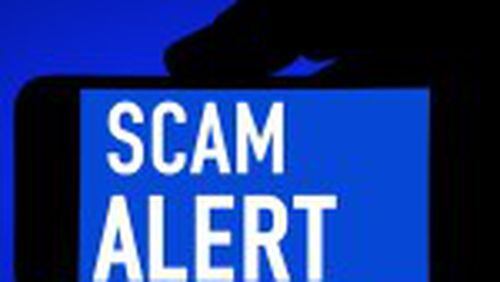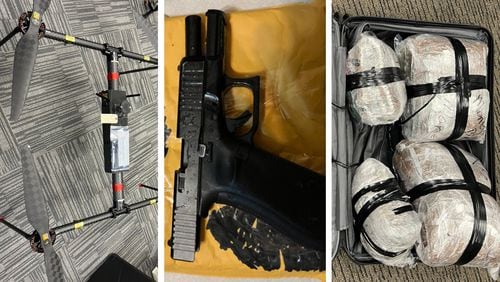Taking the ACT or SAT is a spring ritual for high school juniors in Georgia getting ready to apply to college in the fall.
Many students enroll in prep classes now to familiarize themselves with the tests and improve their scores. Unfortunately, scammers are using the spring test prep season as an opportunity to con parents.
The Better Business Bureau office serving Atlanta and Northeast Georgia issued a warning Thursday that scammers are making fraudulent calls to parents about paying for ACT/SAT review materials their children allegedly ordered.
How the scam works
You get an unsolicited call from a person claiming to be from the College Board, the company responsible for the PSAT, SAT and AP tests, or from another educational organization.
The caller claims to be confirming your address so they can send test prep materials, such as books, CDs or videos, that your child requested at school. In some cases, the caller had their child’s name, phone number, address, school information, and/or the date and location of their child’s scheduled test.
The call comes with a catch. The caller needs you to pay a deposit, sometimes several hundred dollars, for the materials. They claim it will be refunded when the materials are returned after a set number of days.
However, the materials will never arrive, and your deposit will never be refunded. Scammers now have your credit card number and other personal information.
In a recent BBB Scam Tracker report, a consumer wrote:
The caller stated my son had requested SAT prep materials through College Board student services. He had my address, my son's name, date and location of the SAT test my son is scheduled to take. The caller stated they needed parental permission prior to sending documents and that I needed to give him a credit card number for collateral.
We would be sent the college SAT prep materials; the materials would be free of charge for 30 days and we would need to return the materials in the envelope provided and my card wouldn't be charged. The caller stated they send email reminders prior to the return deadline and will send shipping confirmation once the material package is mailed out. My card was charged $249.95 instantly.
Another consumer who lost $250 shared:
I received a call from Brad with College Prep Tutors. Stated that my daughter – knew her name – had requested ACT and SAT study prep materials. He said that they would be sent out via USPS and were free if returned within 30 days but needed to charge my card to initiate the process, and that it would be refunded upon return of the USB materials. He sounded very legitimate and provided a confirmation number. I should have looked further before committing as this appears to be a scam.
How to avoid test prep scams
Always be wary of unsolicited callers. If someone calls unexpectedly asking for payment, always research their organization before you share personal information or agree to receive services or products. Look up the business they claim to represent at BBB.org.
Search the name along with the words “scam” or “complaint” to find out if others had negative experiences. Check BBB Scam Tracker to see if anyone else has filed a report about the company.
Double-check with your child. If scammers say they are calling because of a service your child requested, tell them you need to check with your child first and hang up. Make sure their claims are legitimate before you call back or accept a return call. Don’t send any money or make a payment if there is any doubt about the call. The same is true for emergency scams.
Understand the College Board’s practices. The College Board will never ask you for bank or credit card information over the phone or via email. If a caller suggests otherwise, hang up. Learn more about the College Board’s policies.
Don’t give your financial information to strangers. Never agree to pay a stranger for a purchase you did not initiate, with any form of payment. Do not provide details about your credit card, debit card, bank account number, prepaid cards, or digital wallet, such as Cash App or Venmo, and do not wire money. While some forms of payment, such as credit cards, may offer more protection and a chance for a refund, it is still dangerous to share your private financial information with an unfamiliar person.







